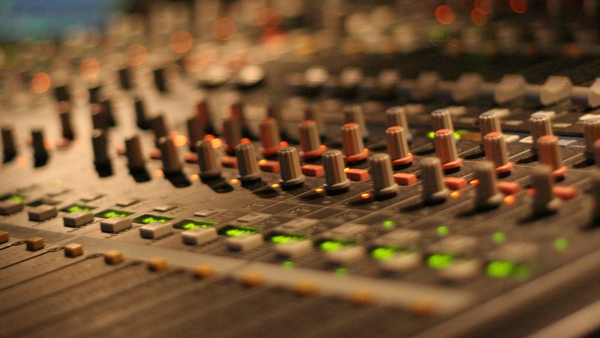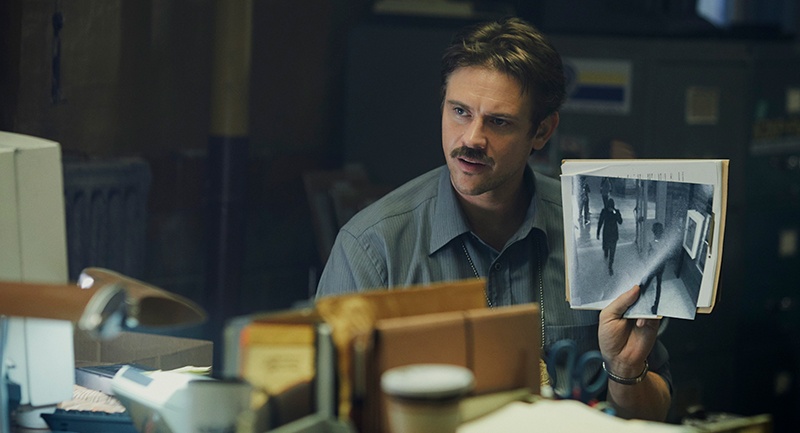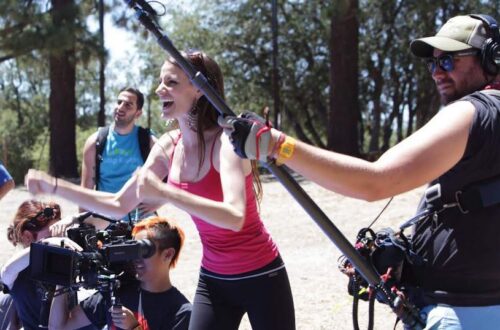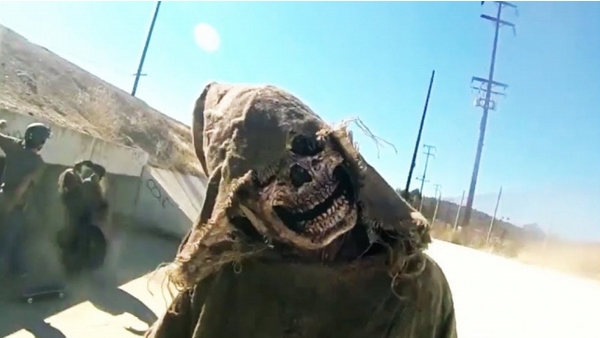 A great many trades come together to produce a singular product in the entertainment world. Many are unsung, and even more have very little chance to explain their role in things we see on the big and small screens. In the opening and closing credits, viewers are presented with a barrage of nebulous terms which flash before our eyes. We at GST don’t think we’re alone in wondering what many of them are.
A great many trades come together to produce a singular product in the entertainment world. Many are unsung, and even more have very little chance to explain their role in things we see on the big and small screens. In the opening and closing credits, viewers are presented with a barrage of nebulous terms which flash before our eyes. We at GST don’t think we’re alone in wondering what many of them are.
So, if you, like us, have ever pondered what a technical term like “key grip”, “best boy” or “music supervisor “ was, let alone what their job really entailed, then we’d like to introduce you to one Anna San Juan.
Well-versed in mixing boards, and tools of the trade, we got to chat with Anna about what she does. She offers her insight and briefly discusses what goes into placing the songs you hear in film, TV, and even short features.
GoSeeTalk: Hey Anna, thanks for taking some time to speak with us. I have to say, as a life-long film fan I am incredibly ignorant as to the roles of many people listed in the credits. I guess I could have at least looked up the basic definitions before now. *laughs* But tell us about your general responsibilities as a music supervisor.
Anna San Juan: Thanks for having me, Marc! I had been completely oblivious about the role as well, until Brad Hatfield’s “Music Supervision” class with Berklee Online. A very practical starting ground indeed! Responsibilities vary on the needs of each project, but in general, I oversee the selection of songs used with picture, and coordinate the necessary legal clearances/licenses required before release date.
How does source or background music relate to a score?
Source and score, along with picture, are ideally complimentary. Understanding the distinction between the two tonal spectrums, with both their individual and collective purposes, allow for effective accompaniment to storytelling.
If I notice the score I am working with goes one direction, deciding on a song that doesn’t overpower its effect or one-up the composer’s intentions would be a desirable way to go.
They say most film music is manipulation. But on the creative end, does the score influence your song choices?
Definitely. It’s always best to recognize songs and score as a unit serving the story and picture. In my opinion, unless completely intentional, the greater similarity in tone between the score and song choices, the more cohesive their integration will be into the scenes.
So then what do you think is an ideal collaboration rapport between a composer and a music supervisor?
Creative respect and communication are really big factors I see can potentially affect our final outputs. I think the key is embracing our own individual responsibilities, tastes, and boundaries, then pushing towards incorporating all that into a combined musical landscape benefiting what viewers ultimately see on screen.
Projects are always in a state of flux, but does your process change coming on-board a project with score and picture already locked?
When pre-production collaboration (e.g. really trying to pin down that ideal sound both the composer and I envision) is not an option, I take the score into account as much as I can while fulfilling the creative
requests of the team.
Minimal viewing disruption (the negative kind) is always a goal, unless asked otherwise. Considering pre-existing score as a positive limitation helps narrow down a sound or vibe that already fits picture.
We interview a lot of composers but never get into technical discussions. For composers, what are some things to consider when working with source or background music?
Other than collaborating in the construction of the best-fitting tone, emotionally and picture-wise, some more practical aspects to consider include source’s musical key, tempo, and rhythm. Again, the goal is to reinforce, not take away.
Seamless transitions, through matching tempo and ensuring a proper rhythm switch/carry over, are excellent goals to keep in mind when working with songs that are possibly written in, or have been pre-selected by the team.
Looking at the projects on your company’s website, you’ve got a lot of short films to your credit. What are you working on currently, and what kind of upcoming projects do you have?
2015 is shaping up nicely! Looking forward to “Chase and Pursuit” and “An Angel’s Story” with writer/producer Joshua Hall, and “City Limits” with writer/director Isaac Caad.
How did you get into “music supervision”? From the people we’ve spoken with, film scoring and the music business in general doesn’t really have a path – it’s kind of an opportunity-based profession. How about the role of music supervisors and other colleagues in your industry?
I initially wanted to pursue screenwriting, but since music has always been a major part of my life, I started looking into the music business towards the end of my undergraduate Communication major.
I’ve always admired how songs create music moments both in film and television, so it was an easy decision upon discovering that this position in a film crew apparently exists. I am still figuring a solid path myself – and perhaps there isn’t any one! The hustle never stops. Finding projects that allow for growth creatively, professionally, and even personally are key to sustaining states of constant inspiration.
Many careers can be attributed to connections, relationships and repeat business. What are some artists you constantly come back to as of late?
In the recent months or so, I’ve constantly been listening to Sir Sly, Highasakite, Night Terrors of 1927, Duologue, Osca, RY X, Ezra Vine, St. Sleep, Bahamas, BØRNS, and Sunset Sons.
You can learn more about the process and projects at Anna’s company’s website Tone Mage Supervision: http://tonemage.com/



